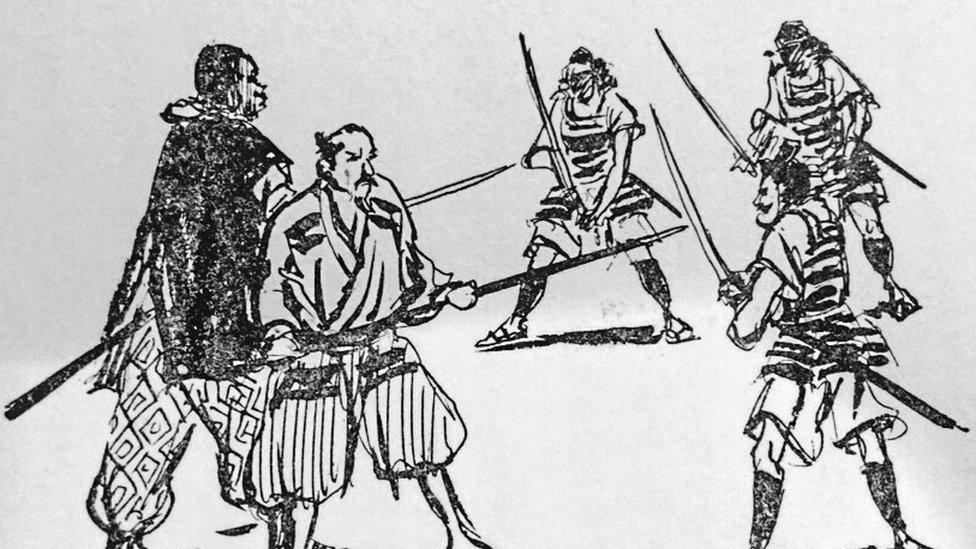Cambridge University samurai exhibition hopes to dispel myths
- Published
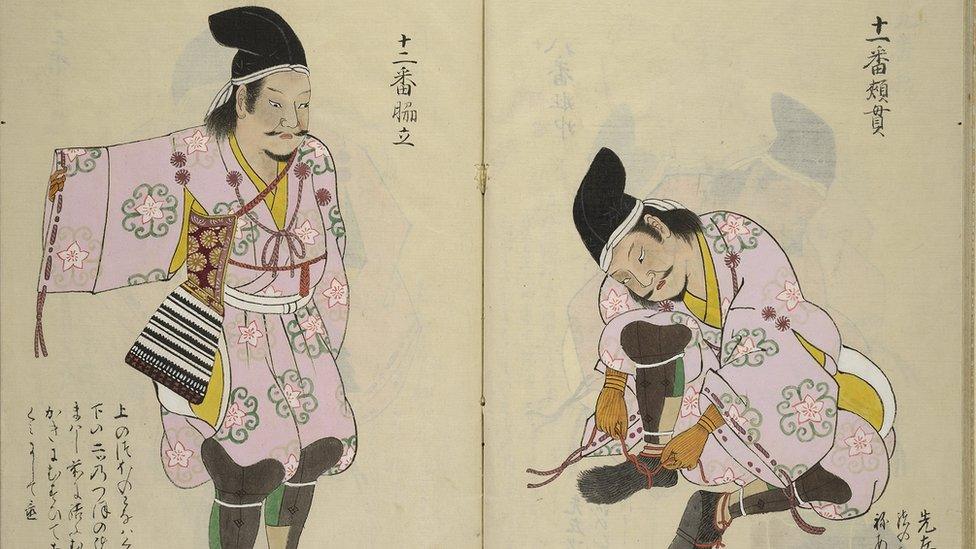
Curator Dr Kristin Williams says she wants people to "questions their assumptions about Japan".
An exhibition that aims to dispel myths about the samurai has opened.
The free exhibition features items from "one of the world's most important collections of Japanese literature"
Running at Cambridge University Library until 28 May, Samurai: History and Legend looks at the historic roots of the samurai rather than the modern perception.
Curator Dr Kristin Williams said usual samurai imagery "is as much legend and mythology as it is history".
"We want visitors to question their assumptions about Japan while they explore and examine the rare books and objects in the exhibition," she said.
"We may think of weaponry and armour when we think of samurai, but there was far, far more to their story."
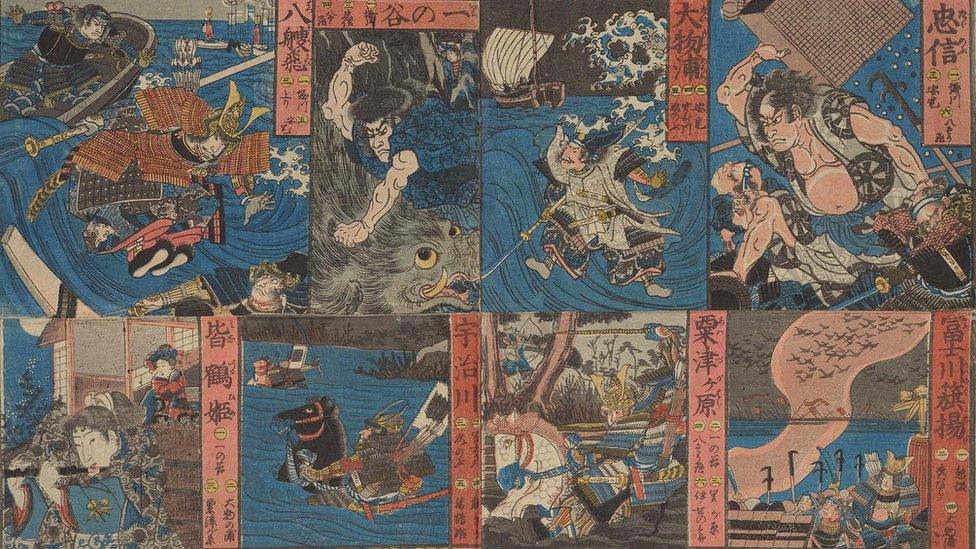
The objects provide a contrast to familiar imagery of the samurai that has led to widespread misunderstanding, the university said
Azuma Kagami, one of the first Japanese books in Britain when it arrived in about 1626, has gone on display for the first time as part of the exhibition.
It was initially misidentified as a Chinese manuscript and bound upside down.
The language is Chinese, but it is a work of Japanese history, printed in Japan using an old style of wooden moveable type.
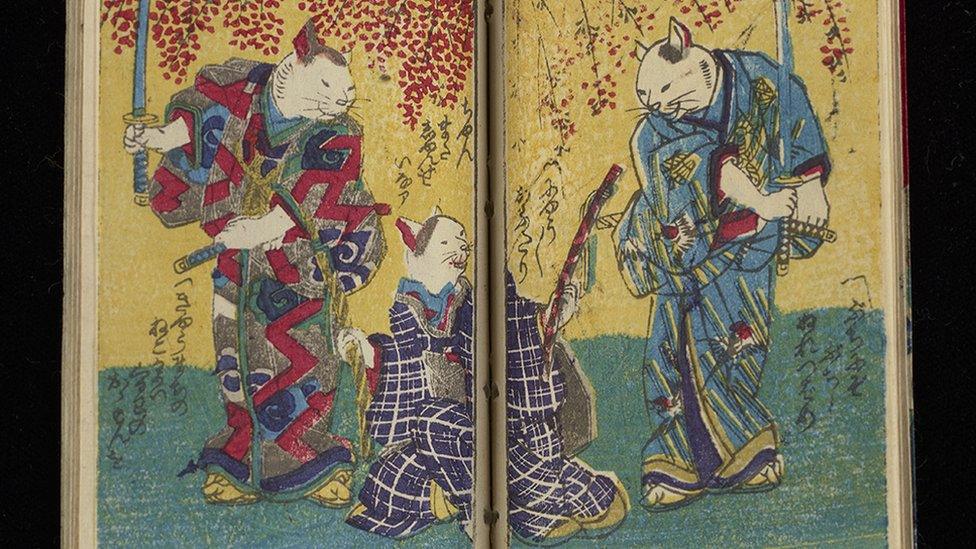
This exhibition asks visitors to examine what kind of samurai is revealed
Also on display are helmets, antique children's books, and a manuscript that passed flower-arranging techniques secretly between master and disciple.
Dr Williams said: "Most people in the UK will have heard of samurai but only associate them with swords.
"Hopefully, our exhibition will inspire people to learn more about Japan and to seek out the stories behind our stereotypes."

Find BBC News: East of England on Facebook, external, Instagram, external and Twitter, external. If you have a story suggestion email eastofenglandnews@bbc.co.uk
Related topics
- Published23 July 2021
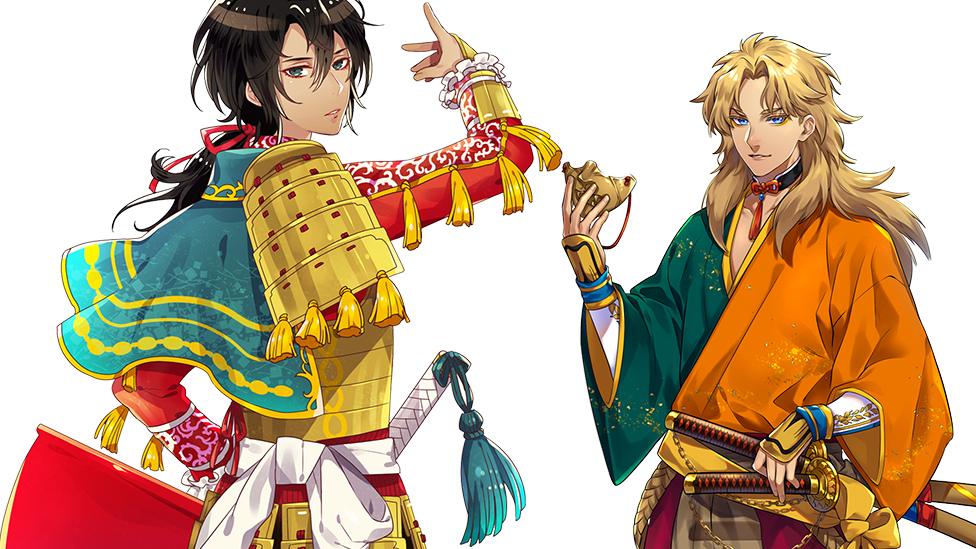
- Published14 October 2019
